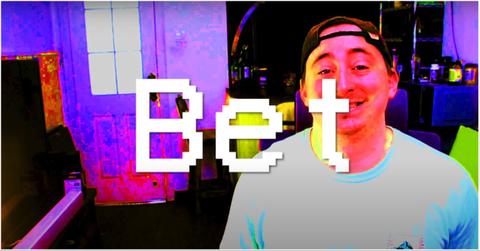What Does "Bet" Mean in Slang? Understanding the Word That Hasn’t Really Changed
What does it mean when someone responds to a conversation with the word "bet"?
Published June 18 2025, 3:39 p.m. ET
You’re scrolling through your feed or maybe chatting with your teenager. You mention plans or say something casual, and they hit you with one word: “Bet.” You freeze for a second. Bet? What does that even mean? You nod and smile like you understand, but deep down, you’re scrambling to figure out if you just agreed to something or were totally dismissed.
If this sounds familiar, don’t worry. You’re not alone. Reddit is filled with people asking the same question: What does “bet” mean in slang?
Part of the confusion stems from this little word being surprisingly flexible. Depending on how it’s used, “bet” can mean “OK,” “got it,” “sure,” or even “we’ll see about that.”
The interesting thing is that while the usage has expanded, the core meaning of “bet” in slang hasn’t changed. Unlike other slang terms that evolve drastically, this one has stayed pretty true to its roots.
What does “bet” mean in slang? It’s all about agreement.
In slang, “bet” usually means “OK” or “I agree.” If someone says, “I’ll meet you at 7,” replying “Bet” just means you’re down. Think of it like a cooler, more confident version of “sure thing” or “sounds good.” It’s short, clear, and has a certain swagger to it.
As Merriam-Webster puts it, it’s a slang way to say “yes” or to affirm a statement or plan. Dictionary.com echoes that definition, calling it an expression of approval or agreement. It’s basically the verbal equivalent of a head nod.
So, where did it come from?
“Bet” has been around as a slang term since at least the 1980s, and it likely grew out of older phrases like “You can bet on it” or “You bet.” Those expressions were used to show confidence or certainty. Over time, “bet” got shortened and used on its own — no need for the rest of the phrase.
What makes “bet” interesting is how consistent it’s been. Many slang terms completely change meaning over time, like how “bad” can mean “good,” or “ghosting” now refers to ignoring someone instead of something spooky.
The word “bet,” however, has more or less retained what it originally meant. It just found new life with younger generations.
How do you use "bet" correctly in conversation?
Let’s break down how context shapes the meaning of “bet”:
Agreement
- Friend: “I’ll grab food and meet you at 6.”
- You: “Bet.”
- Translation: Sounds good. I’m in.
Challenge or acceptance
- Friend: “You won’t beat me in Mario Kart.”
- You: “Bet.”
- Translation: Watch me. Game on.
Sarcasm or disbelief
- Friend: “I swear I’m going to the gym every day this week.”
- You: “Bet.”
- Translation: Sure you are.
The key to using “bet” properly is all about your tone. In text messages, verbally, or in a social media comment, the exact meaning depends largely on how it is delivered and who is saying it. With a little practice, “bet” starts to become natural, and you’ll figure out when and where it is appropriate to add to the conversation.
Why has "bet" continued to be a popular slang term?
One of the reasons why slang is so frustrating is that it continues to change. By the time you master how to use and understand a certain term, the internet has stopped using it and moved on to something new. That, however, hasn’t really been the case with the word “bet.”
The term is quick, cool, and lets people respond with energy or attitude without having to say much. Allowing people to express themselves with a single three-letter word is likely why it has stuck around for decades and continues to pop back up with every new generation.

